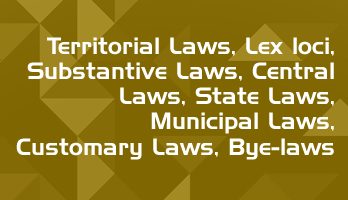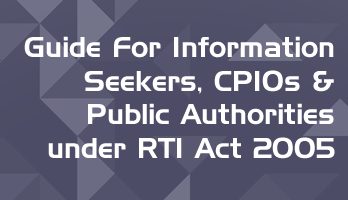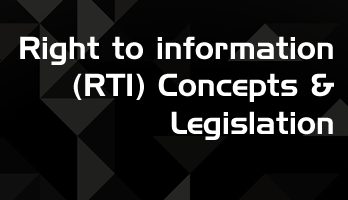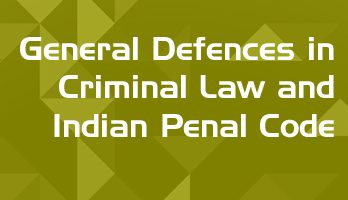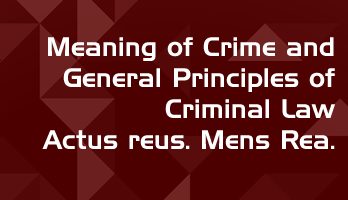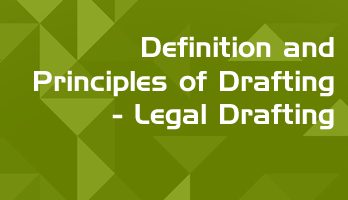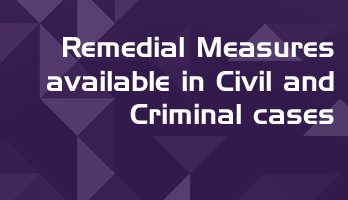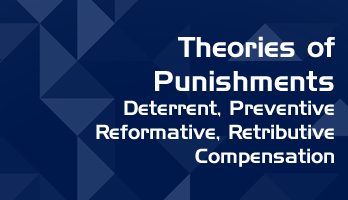Free Full Course Available on LawMint's YouTube Channel
How to Land Your Dream LLB Internship in a Top Law Firm
- Part 1 - Introduction
- Part 2 - Internship Planning
- Part 3 - Internship Research
- Part 4 - Building Your Profile
- Part 5 - The Email
- Part 6 - The Resume
- Part 7 - The Cover Letter
- Part 8 - The Interview
- Part 9 - Self Development
Practical and comprehensive course, with real examples and step-by-step analysis of the complete internship application process. Check out LawMint's YouTube channel now!
Pleading
According to Halsbury’s Law of England, A ‘pleading’ is used in civil cases to denote a document in which a party to a proceeding in a court of first instance is required by law to formulate in writing his/her case or part of his/her case in preparation for the hearing.
According to P. C. Mogha, ‘Pleadings’ are the statements in writing drawn up and filed by each party to a case stating what his/her contentions will be at the trial and giving all such details as his/her opponent needs to know in order to prepare his/her case in answer.
Principles of Pleadings
According to Order VI Rule 2 of CPC the Principles of Pleading are as follows:
Every ‘pleading’ must state the facts and not the law
An analysis of this rule shows that it has two parts, one is affirmative and the other one is negative. The former part of the rule directs that a pleading must state facts while the later part of the rule directs that a pleading must not state the law. The implication is that the following things should not be stated in the pleading:
a. Provisions of law
b. Conclusions of law
c. Conclusions of mixed law and facts
It is for the obvious reason that the courts are bound to take judicial notice of the law applicable to the facts pleaded by the parties. Thus, if in a particular case the court finds ‘suo motu’ that the rules under which the D.I.G Police proceeded to dismiss the plaintiff were ‘ultra vires’ and so inoperative, it is its duty to declare that the order of dismissal was illegal.
Exceptions to the above rule
I. Foreign law: a court is not bound to take judicial notice of foreign laws.
II. Customs
III. Mixed questions of law and facts
IV. Legal pleas
V. Inferences of law
Every pleading must state all the material facts only
There are following three aspects of this principle
a. Every ‘pleading’ must state material facts only: To overcome the problem of overburdening of facts in a pleading the second rule says only material facts to be mentioned. The answer given by the code is that material facts are those facts which a plaintiff must allege in order to show a right to sue or a defendant must allege in order to constitute his defense.
b. Every ‘pleading’ must state all the material facts: The Supreme Court has laid down in SN Balkrishan Vs. George Fernandez AIR 1969 that the omission of single material fact leads to an incomplete cause of action and the statement of claim becomes bad. Thus, any omission of material fact(s) amounts to no cause of action at all.
c. Every ‘pleading’ must state only those material facts which are material at the present stage of the action: thus, without reference to the possible objections of the opposite party it is not necessary to anticipate the answer of the adversary.
Exceptions to the second rule are as follows:
i. Condition Precedent
There is no need for a party to state in his/ her pleading the performance of any condition precedent for its averment shall be implied in his pleading. For example, X agrees to build a house for Y at certain rates subject to condition of the contract is that payment should only be made upon the certificate of Y’s architect that so much amount of work is due. If X desires to file a suit for money against Y, the obtaining and presenting of the certificate from Y’s architect is condition precedent to X’s right of action. Here it is not necessary of Y to state in his plaint that he has obtained the said certificate. He can simply draft a plaint showing a good prima facie right to the agreed amount without mentioning any certificate. It will be for Y to plead that the architect has never certified that amount of money is due.
ii. Presumption of Law
Order VI, Rule 13 of CPC provides that neither party need in any pleading allege any matter of fact which the law presumes in his/her favour or as to which the burden of proof lies upon the other side unless the same has first been specifically denied. Example, consideration of bill of exchange where the plaintiff has only on the bill and not for the consideration as substantive ground of claim.
iii. Matters of Inducement
It is sometime desirable to commence a plaint with some introductory averments stating who are the parties, what business they carry on, how they are related or connected and other surrounding circumstances leading up to the dispute. Such facts are not essential to the cause of action and therefore, not material. These are called matters of inducement and are allowed in England and the same may be tolerated in our country also on the same basis.
Every ‘pleading’ must state the facts on which the party pleading relies and not the evidence by which they are to be proved
this rule directs that every pleading shall contain a statement of the material facts on which the party pleading relies for his/her claim or defence but not the evidence by which they are to be proved. A party need not set out the evidence whereby he/ she proposes to prove the facts relied upon him/her. It is absolutely essential that the ‘pleading’, not to be embarrassing to the opposite party, should state those facts which will put him/her on his/her guard and tell him/her what he/she will have to meet when the case comes on for trial.
Practical or special application of the rule
Mental Condition
Order VI, Rule 10 directs that whenever it is material to allege malice, fraudulent, intention, knowledge or other condition of the mind of any person, it shall be sufficient to allege the same as a fact without setting out the circumstances from which the same is to be inferred.
Notices
Order VI, Rule 11 lays down that whenever it is material to allege notice to any person of any fact, matter or thing. It shall be sufficient to allege such notice as a fact unless the form or the precise terms of such notice or the circumstances from which such notice is to be inferred are material.
Implied Contract or Relative
Order VI, Rule 12 directs that whenever any contract or any relation between any person is to be implied from a series of letters or conversation or otherwise from a number of circumstances.
It shall be sufficient to allege such contract or relation of fact and to refer generally to such letters, conversation or circumstances without setting them out in detail and in such a case the person so pleading desires to rely in the alternative upon more contracts or relations than one as to be implied from such circumstances, he/she may state the same in the alternative.
Exception
The only exception to the third rule is in the case of writ petitions and election petitions. In such petitions it is necessary to state matters of evidences in support of the allegations made therein.
Every ‘pleading’ must state the material facts concisely but with precision and certainty
This rule highlights two requisites for a good pleading,
(a) Conciseness and
(b) Preciseness and Certainty.
As pointed out by Pal, J., of the Calcutta High Court, the ‘pleading’ not only needs to be concise they must also be precise. Thus, to make a plaint concise we must follow three things:
(a) omit unnecessary allegations
(b) omit all unnecessary details when alleging material facts and
(c) give proper attention to the language used in alleging material fact.
‘Pleadings’ are the statements in writing drawn up and filled by each party to a case stating what his/her contentions will be at the trial and giving all such details as his/her opponent needs to know in order to prepare his/her case us answer.
The main principles of ‘Pleadings’ are
(i) every pleading must state the facts and not the law; (ii) every pleading must state all the material facts and material facts only;
(iii) there is no need for a party to state in his/her pleading the performance of any ‘condition precedent’; presumption of law, and matters of Inducement.
Questions
Explain the term ‘Pleading’.
According to P. C. Mogha, ‘Pleadings’ are the statements in writing drawn up and filed by each party to a case stating what his/her contentions will be at the trial and giving all such details as his/her opponent needs to know in order to prepare his/her case in answer.
Thus, ‘pleading’ means, a written statement by the victim to tell his/her contentions will be at the trial and giving all such details as his/her opponent needs to know and accordingly the wrong-doer also prepares his/her side of the answer in defense.
List any two Principles of Pleading.
(i) Every ‘Pleading’ must state the facts and not the Law.
(ii) Every ‘Pleading’ must state all the material facts and material facts only.
Free Full Course Available on LawMint's YouTube Channel
How to Land Your Dream LLB Internship in a Top Law Firm
- Part 1 - Introduction
- Part 2 - Internship Planning
- Part 3 - Internship Research
- Part 4 - Building Your Profile
- Part 5 - The Email
- Part 6 - The Resume
- Part 7 - The Cover Letter
- Part 8 - The Interview
- Part 9 - Self Development
Practical and comprehensive course, with real examples and step-by-step analysis of the complete internship application process. Check out LawMint's YouTube channel now!
Acknowledgement : This article is adapted from Swayam-NIOS course material.



